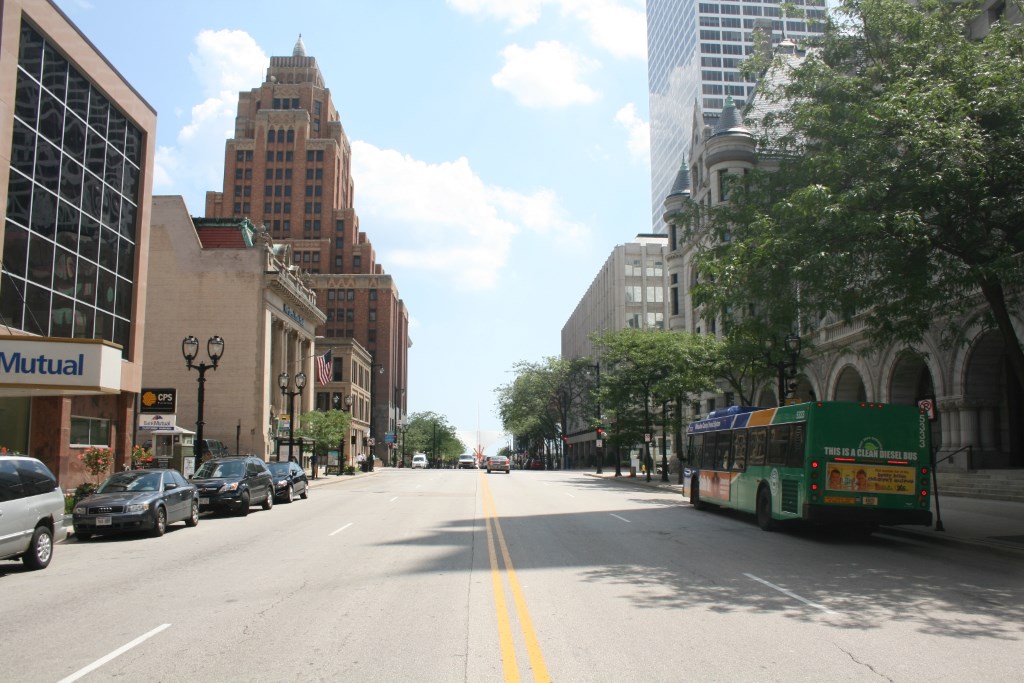Legislators Urge New Strategy on Budget
Stung by Republican cuts in funds to Milwaukee, city-based legislators search for new approach.
The budget battle is over, but Milwaukee representatives are still struggling with the repercussions of a fight in which Republicans made a point of cutting state money flowing into Milwaukee. “It’s not a new battle,” says Rep. Evan Goyke (D-Milwaukee), “and it’s not uncommon.”
Goyke told the Wisconsin Examiner he felt that Milwaukee was a prime political target from the moment he arrived in the legislature. After Gov. Scott Walker lost his re-election bid in 2018, some people thought the political tide would shift, Goyke said. “You woke up on November 7th and it was a different administration,” he said, “but we’re dealing with a broader issue.”
One of the biggest hits Milwaukee County took in the 2019-21 budget involved money to reduce lead contamination in drinking water. Republicans struck down a proposed $40 million by Gov. Tony Evers to replace lead lateral lines statewide, arguing that too much of the funding would go to Milwaukee.
Rep. John Nygren (R-Marinette) criticized the proposed state funding for lead remediation, which he described as “people from Marinette funding lead replacements in Milwaukee,” adding, “I’m not sure that that’s necessarily fair from a taxpayer standpoint.”
Co-Executive Director of Milwaukee Water Commons Brenda Coley condemned such statements. “That’s a problem,” said Coley, “that’s racializing water. And water does not have to be racialized. We all deserve clean water.” Milwaukee Water Commons works to inform the public on water-related issues. It also assists and advocates for the installation of a water filter in every home to prevent lead poisoning. “That’s to be installed while they wait for lead lateral removals,” Coley emphasized, “not in lieu of them.”
The cut would have resulted in a decline in state services to the county, “whether that’s parks, or public safety, or public transportation,” said Goyke. “It was done in a way where there was never any public input, or hearing or discussion,” he added. “We were handed a motion at the last minute by Republicans on the Joint Finance Committee.”
Senator Alberta Darling (R-River Hills) highlighted the child welfare issue in a Joint Finance Committee hearing on June 4, saying Milwaukee County should pay more. Darling suggested that instead of allocating state funding to Milwaukee, “What we need to do is to get the community to care about these kids.”
“It can’t happen at the state level,” Darling added, saying she was “disappointed that we keep pointing the finger at someone else.”
The budget cuts didn’t stop there. “One that really got under my skin was about district attorneys,” said Goyke. Republicans approved additional district attorney positions for several other counties, but Milwaukee’s were denied. Like the shared revenue debate, there was “no explanation, no argument,” Goyke told Wisconsin Examiner. The county had requested those prosecutors to focus on High Intensity Drug Trafficking Area operations, a federal program that combines prosecutors, drug units and other resources to target local drug issues. Like much of the nation, Milwaukee is experiencing a drug overdose crisis.
Milwaukee’s revenue is further diluted by another factor raised by Sen. Lena Taylor (D-Milwaukee) and Rep. David Crowley (D-Milwaukee) this week–prison gerrymandering. Legislators and advocates, including ex-prisoner activist Sylvester Jackson, explained the issue at a press conference that kicked off the “Unlock The Vote” campaign. A bill proposed by Sen. Taylor, Rep. Crowley and Rep. Jodi Emerson (D-Eau Claire) would change Wisconsin’s practice of counting prisoners as part of the population in the towns where they are incarcerated, instead of where their homes are.
The current practice, which the bill co-sponsors call “prison gerrymandering,” results in millions of dollars in state aid diverted from Milwaukee County, where more than half of African American men in their 30s and half of men in their early 40s have been incarcerated in state correctional facilities, according to a report by the Employment and Training Institute at the University of Wisconsin—Milwaukee. Instead of going to Milwaukee, state aid goes to the towns where prisoners from Milwaukee are incarcerated. Jackson, a formerly incarcerated person who lives in Milwaukee, pointed to his own case as an example “The money that should be going to Milwaukee is going to Black River Falls,” he said, because that’s where he was imprisoned during the 2010 census.
For all the targeted cuts, Milwaukee is actually a major contributor to the state economy. “No area generates greater wealth and greater tax revenue than Milwaukee,” said Rep. Goyke. Much of the money generated in the state’s largest city goes into the state’s general fund through taxes that pay for schools, roads, cities and towns outside Milwaukee County, he points out. He wants people to understand that the city can become an engine for the state. Not a burden.
Coley has similar hopes. She wants Milwaukee to become a water-centric city that lives up to its nickname “The Fresh Coast.” Despite the many problems Milwaukee faces, and the politics of the state budget battle, Rep. Goyke cautions against the conversation becoming a “chorus of negativity.” For him, the first step is reclaiming the narrative about Milwaukee. “We’ve got to take the message back.”
Reprinted with permission of Wisconsin Examiner.
Political Contributions Tracker
Displaying political contributions between people mentioned in this story. Learn more.






















